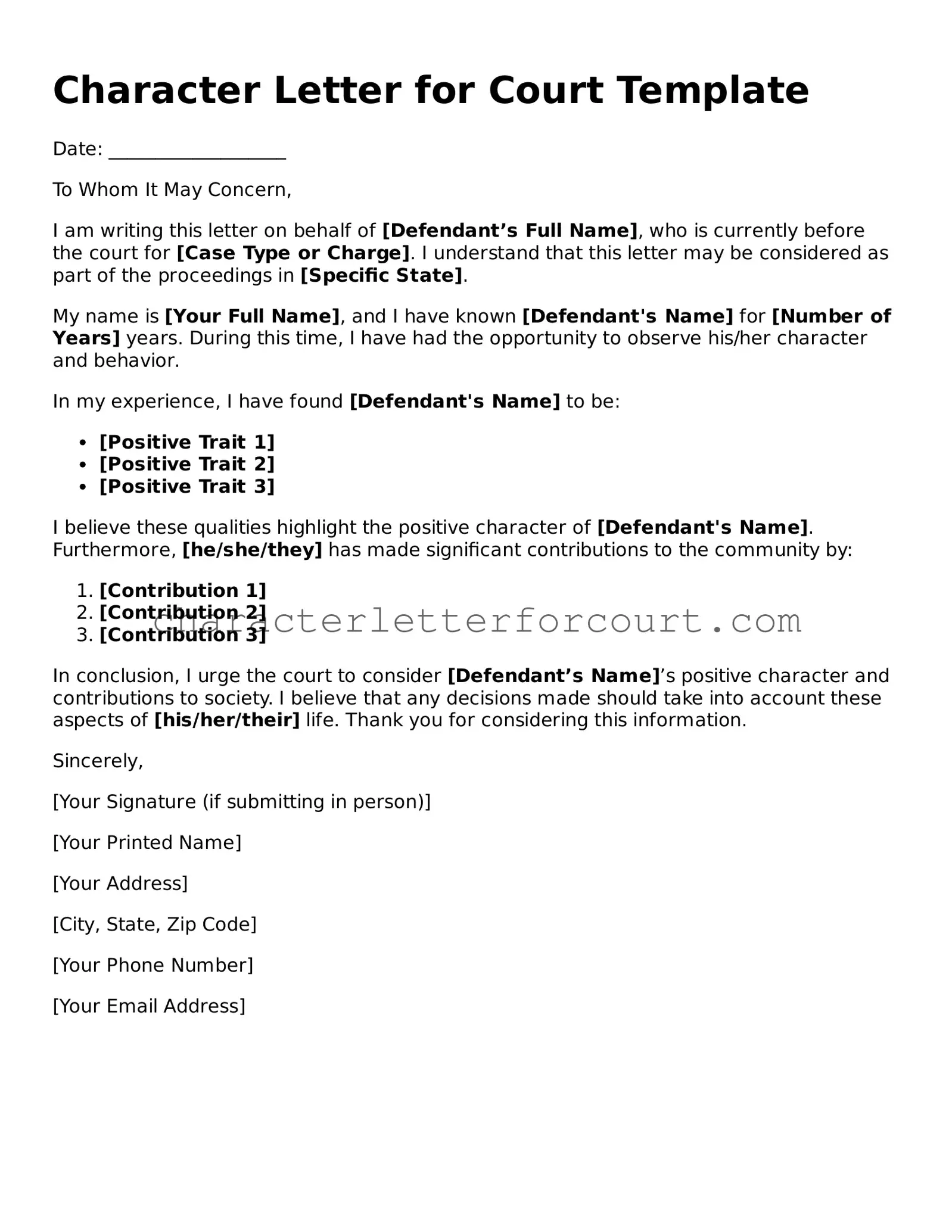What is a Character Letter for Court?
A Character Letter for Court is a document written to provide a personal perspective on an individual involved in a legal matter. It typically includes information about the person's character, behavior, and contributions to the community. The letter aims to present a positive image of the individual to the court.
Who can write a Character Letter for Court?
Anyone who knows the individual well can write a Character Letter for Court. This may include friends, family members, employers, teachers, or community leaders. It is important that the writer can provide honest and relevant insights into the person's character and behavior.
What should be included in a Character Letter for Court?
The letter should include the writer's relationship to the individual, specific examples of positive behavior or character traits, and any relevant experiences that highlight the person's character. It should also include the writer's contact information and a statement of willingness to testify if needed.
How long should a Character Letter for Court be?
A Character Letter for Court should typically be one to two pages long. It should be concise yet detailed enough to convey meaningful information about the individual's character. Avoid unnecessary information that does not contribute to the overall message.
Is there a specific format for a Character Letter for Court?
While there is no strict format, the letter should be typed and formatted in a professional manner. It should begin with the date, followed by the court's address, and a formal greeting. The body of the letter should be clear and organized, concluding with a polite closing and the writer's signature.
Can a Character Letter for Court influence the judge's decision?
Yes, a well-written Character Letter can influence a judge's perception of the individual. It provides context and personal insight that may not be evident in legal documents. However, the impact of the letter will depend on its content and the overall circumstances of the case.
